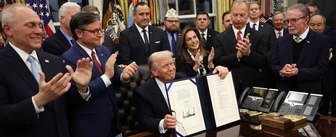Last week I had the good fortune to attend an event put on by VLAB at Stanford called Virtual Currencies: Gold Rush or Fools' Gold, The Rise of Bitcoin in a Digital Economy. This event explored the rise of the Bitcoin virtual currency. It also included a presentation by OpenCoin on their competitive Ripple Protocol. This is just the sort of thing that excites us Silicon Valley geeks: an open standard outside government control that reduces friction in pseudo-anonymous online commerce, all guaranteed by distributed cryptography. In other words: full buzzword compliance.
Two particularly interesting members of the panel were Cameron and Tyler Winklevoss, the Harvard twins who famously sued Facebook, a story dramatized in the movie "The Social Network." After setting up their own venture capital firm with their settlement from that suit, they took a strong position in bitcoin, buying up 1% of all bitcoins worldwide and making an investment in BitInstant.
During the Q&A, a member of the audience asked Cameron about the public's awareness of bitcoin. He replied (paraphrasing here) that he felt that "by now most people probably know about bitcoin." Now, there's a long tradition of people who work in major tech hubs such as Silicon Valley, New York, Boston, Austin etc... to believe that everyone in the country has heard of something when in reality it can take months or years for news to reach "most people." We tested Cameron's assertion against a nationally representative sample of 1000 US residents and found that in fact, the awareness of bitcoin is still quite low.
Have you ever heard of Bitcoin?
| Yes | 30% |
|---|---|
No | 70% |
30%. That's a number seemingly closer to "some people" than "most people." It's pretty safe to say Bitcoin is still in the early adopter phase of its life. The good news is that there's still plenty of room to grow. Furthermore 30% awareness without any advertising budget at all (or in this case, even a corporation pushing the brand) is better than many established consumer products. Men are almost twice as aware of Bitcoin as women, younger people are more aware than older people, and awareness is highly correlated with both education and income. In other words, people who are more like the Winklevoss twins demographically are more likely to be aware of Bitcoin.
Those who indicated they were aware of bitcoin were further asked what they thought it was, if they had used it, and whether or not they planned on using it in the future.
What do you think Bitcoin is? Check all that apply.
Multiple choice, randomized. Totals to >100%.
| A virtual currency | 82% |
|---|---|
An online payment system | 35% |
A way to transfer money anonymously | 25% |
Something you use in a slot machine | 0% |
A small coin | 3% |
A payment system for hackers | 8% |
Other | 0% |
Not sure | 9% |
Obviously several of these choices were invented but 3% of people who were aware of bitcoin saying that it is a small coin either tells us that 3% of Bitcoin-aware people have a sense of humor or have a misconception about it.
Have you ever used Bitcoin?
| Of Aware | Of All Respondents | |
|---|---|---|
Yes | 2% | 0.6% |
No | 98% | 99.4% |
Bitcoin users are the new 1%! Again, lots of opportunities for growth. In terms of market dynamics, Bitcoin is still only appealing to innovators; even the early adopters haven't shown up yet.
Do you plan on using Bitcoin in the future?
| Yes | 10% |
|---|---|
No | 51% |
Not sure | 39% |
Among the people who were aware of Bitcoin, about 5 times as many who have used it intend to use it in the future. There's another 39% of fence sitters who could potentially really grow usage but just over half of those aware have already decided against using it.
Bitcoin is fascinating on many levels: technical, societal, legal, financial, and human. It remains to be seen how governments will react to it and what regulatory barriers emerge to widespread usage. Certainly there's much work to be done to popularize the system, but after all, PayPal was in a similar situation in its early days and eventually became ubiquitous.
Cross-posted at The HuffingtonPost. Thanks to Jenny Miller at YouGov for running the tables and to Cameron Winklevoss for your comment prompting this study.
Full disclosure: I'm on the board of VLAB although I did not help organize the event referenced here.








